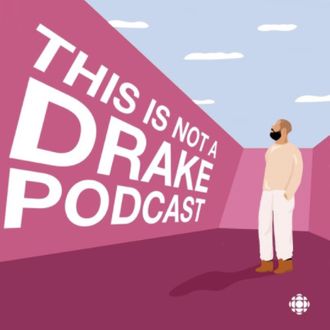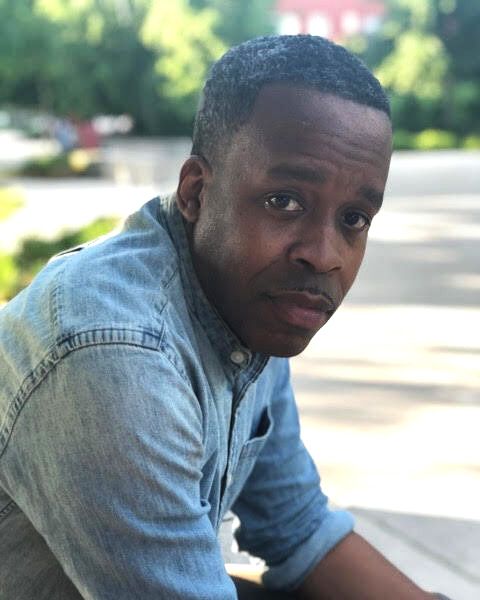
The CBC’s This Is Not a Drake Podcast is, true to its title, a potent mix of many other things: a loving study of different subjects within hip-hop history, a subtle critique of Canada’s public broadcaster, an overt indictment of the Canadian music industry, and a classic take on the audio-documentary format.
The podcast is created and hosted by Ty Harper, a veteran storyteller who has covered the Toronto hip-hop scene for decades. Harper is a deep well of knowledge, himself a piece of an institution. Together with Reza “rez DigitaL” Dahya, he was the co-host of a beloved radio show, OTA Live, that for several years in the mid-2000s dutifully served a largely underserved and underacknowledged community of hip-hop fans in the increasingly diverse city of Toronto.
Harper is now a producer at the CBC, working on the public broadcaster’s flagship arts magazine show Q. He was brought on to lead the podcast after a somewhat extensive period of creative negotiation: The project’s original concept was a fairly standard Drake biography, but Harper pushed back, feeling that Drake’s story has already been well-told — and besides, Drake didn’t come out of nowhere.
Hence This Is Not a Drake Podcast. The limited-run series is relatively short, coming in at a quick four episodes plus a prologue and an epilogue, but each entry is dense, ambitious, and incredibly thoughtful. One episode seeks to explore the role of Toronto as a hip-hop city, sketching out the scene’s textured history and its ties to New York City. Another is built around hip-hop’s relationship with gender, which features Harper bringing in the Toronto-based journalist Anupa Mistry to lead the inquiry.
Vulture spoke with Harper recently about the series, its origins, and the struggles embedded in developing a project like this for Canada’s public broadcaster.
What were the origins of this podcast? It must have been an interesting process that led you to move the focus beyond Drake.
When I first heard about the project, it was more a “Story of Drake” type of thing. On paper, there’s absolutely nothing wrong with that, except I felt it was ten years too late. Drake has been a known factor in the Canadian hip-hop scene from the very beginning. He was a child actor on Degrassi, and he came up at a time when my radio show OTA Live was doing stuff, so we were all very aware of him. (Actually, his manager at the time was my cousin, that’s sort of how I first got introduced to Drake.) So, you know, now that it’s ten years later and Drake is dominating the pop landscape, was that really what we should be doing?
More importantly, just being older and having a better understanding of the larger history of institutional racism, the idea of doing a project on Drake like this was a red flag to me. If you’re trying to make a commitment to connecting with a Black, brown, and Asian hip-hop that hasn’t really been catered to in the history of the CBC, it would not be a good move. For people who know the history of hip-hop in Toronto and Canada, they also know that there’s just a shitload of artists that came along before Drake that you just had never covered.
So you had to twist the CBC’s arm, in a sense.
The producer in me just knew instinctively that this would not be good PR for the CBC. I probably went on a really long rant with Josh Bloch, the showrunner. To be fair, this has nothing to do with him, and he knew where I was coming from. This was probably a year before I actually came onboard. He had a sense that the CBC wanted to do this doc with me. Initially, they were looking at other people, but I was going on paternity leave, so I was trying my best to help steer the ship the right way.
I think it was the week before I went on leave when they were basically like, “Look, we want you to host it. We’ll wait.” And they were open to my treatment. So I went, “I don’t think we should be doing anything on Drake right now, but if we do need to do it because that’s the direction you clearly want to go in, we need to use him as a lens, and only a lens, to try to explore hip-hop history writ large, as opposed to making it about Drake.”
Do you see the project as a way of correcting the record?
Yeah … I mean, I can’t lie and act as if there weren’t other ideas in play. I’m also signaling to an audience that’s tired and exhausted and upset that they have not been represented within the framework of the CBC. They are, after all, shareholders, who pay for the CBC through their tax dollars.
I remember when we first embarked on this thing. That first episode literally wouldn’t have happened if I didn’t have these relationships. One of the first phone calls I made, when I told them what the title and potential was about, they were immediately like, “Why are we telling a story about Drake when there are stories about artists before him that haven’t been told by the public broadcaster?”
So, the series itself is a dive into hip-hop history. But if you listen to the prologue, it’s also meant to be a critique of the institution that’s funding it, as well as the institutions that have failed the Canadian hip-hop scene for the last 40 years … like the Canadian music industry.
What were the things you absolutely knew you wanted the podcast to cover?
I knew that I needed this project to be accepted by Black Toronto, first and foremost. And the larger Toronto and Canadian hip-hop communities, as well. That was the very first thing.
Then there were the things I wanted to talk about. I wanted to get at the Canadian music industry’s anti-Black racism historically with respect to Toronto, because that’s what I’ve seen and that’s what I’ve experienced. It’s what I’ve covered as someone doing a hip-hop variety show back in the day. Part of our mandate then was just to be deeply rooted in the scene, so we had done biographies on hip-hop artists like a Tribe Called Quest while making sure there was representation from our own artists: Maestro Fresh-Wes, Dream Warriors, and so on.
I also knew I wanted to do something tied to mixtapes, using it as a way to get at how hip-hop made its transition into the digital space. Chat rooms as well, that was a thing. Hip-Hop Canada is a forum that was a big deal back in the era of Drake. But that didn’t happen, and we streamlined it to make it into an evolution of hip-hop mixtapes, which was produced beautifully by Del Cowie.
And then there is the whole relationship between hip-hop and R&B. I mean, of course, this is Drake. He’s the prime example of where hip-hop is at in 2020, as far as this hybridized blending is concerned. I’m an ’80s dude, I came up at a time when Rakim hopped on Jody Watley’s song. That was a big fucking deal. Holy shit. We weren’t able to articulate why it was a big deal at the time, but we understood that there was something about Rakim hopping on an R&B song that was a precedent we needed to acknowledge. At the time, we didn’t understand the class tensions involved in that, but now that I’m older, I understood, like, “Look, there was a time where hip-hop was on one side and R&B was over here, and there were these tensions that were underpinning this relationship.” And look where we are now: a rapper is basically an R&B singer. I just wanted to chart that journey.
The series is much shorter than most podcast documentaries. Was it always going to be four episodes?
The CBC had wanted us to do five or six episodes. Production started at the end of January and was supposed to wrap up at the end of May, and I was just like … at this point I’m five years into producing at the CBC, so I have an understanding of how things work, there was no way we could do six. This was going to be three or four episodes, and you’re just going to have to be comfortable with that.
Should we expect you to work on more series like this for the CBC?
I don’t know if that’s necessarily a possibility. I’m a full-time producer on a flagship show at Q, and just being able to pop out of that is highly unlikely again. But who knows.
There are ways in which being Black and being a producer do play into this idea of anti-Black racism, and with this podcast I’m striving to address that anti-Black racism within media, radio, broadcasting, and podcasting.
More generally, is it challenging to find avenues for Black stories to be told within Canadian media?
It’s such a complicated thing. I’ve had one dream career goal since I was 18 or 19, and that was to be a producer. That’s such a rarity in Toronto. I don’t know a lot of Black producers, specifically that would work in radio. They do exist, but most of them would’ve come from something else. They would’ve been an artist, or a musician who fell into radio, or a rapper, or they come from hard news.
I’ve always had my focus be on storytelling through the lens of audio and radio. I think the lack of people like me wanting to do that has a lot to do with the structures that determine what’s considered valuable as far as storytelling through this platform, through this medium.
That’s still the case. It can be a lonely space, particularly when you’re dealing with anti-Black racism within that system. Because who do you talk to? Artists will get it, but they have their own community. They can deal with trauma and stuff like that. Luckily, in the past year or so, there’s been actual Black and brown producers whom I work with.
So, yeah, it’s been pretty lonely. The hope with a podcast like this, and a couple of other things I know are coming down the pipeline, we will finally see a space that’s truly a hip-hop podcasting industry, and a larger Black cultural podcasting industry, and an even larger Black, brown, Asian, Indigenous podcasting industry — because it just seems like, right now, it’s just heavily dominated by white storytelling and white ownership of those stories.






